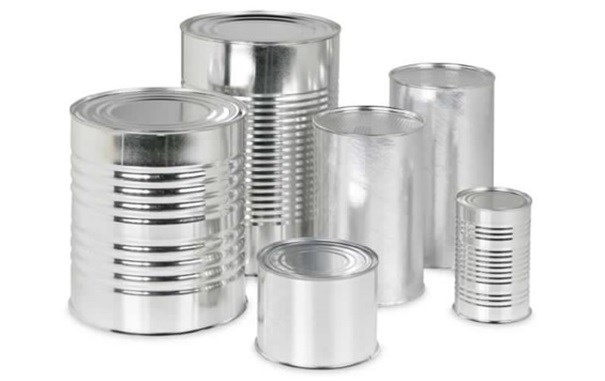
Top stories






More news

ESG & Sustainability
#AGES2026: How to back Africa's next-gen green and blue entrepreneurs























Logistics & Transport
#Budget2026: Road freight logistics and what it means for consumers


“Metal packaging comes in a wide range of sizes – from a small can for tomato concentrate, to a steel drum for bulk tomato transport, and everything in-between. Despite holding a relatively small share of the total packaging market, factors such as innovation, new introductions and significant promotional activity are driving the ever-increasing demand for cans,” says Delanie Bezuidenhout, CEO of MetPac-SA.
“Metal and aluminium cans are becoming increasingly popular as a packaging option, owing to the multitude of sizes, shapes and printing designs that can be manufactured to individual customer requirements.
“Innovation sells packaging and packaging sells products. The lightness of aluminium packaging helps to save resources during filling, product transportation, storage and the transportation of scrap at the end of a product’s life. Thanks to its unique attributes, cans act as food warehouses that have unrivalled shelf lives. They are able to protect their contents over many months, with no refrigeration and therefore help to save food, energy and prevent wastage. Furthermore, metal and aluminium cans are unbreakable, impact-resistant, puncture-resistant and able to withstand extreme temperatures and pressure.
“Although the market share for metal packaging has traditionally been relatively small (216.8 tonnes of 3 490.1 tonnes, according to the latest stats available to Packaging SA), we believe it is poised for growth, as South Africans are increasingly choosing cans as the packaging material of choice when it comes to both their drinking, food and general packaging preferences. Beverage cans today are among the lightest beverage packages, while at the same time being extremely robust and protective of their contents. Today cans can be produced with a wall thickness of 0.097 mm – as thin as a human hair.”
Metal or aluminium cans offer brand owners a proven safety and sustainability record and excellent performance through the supply chain. Because metal cans are designed to meet the demands of our modern lifestyles, they are unbreakable and reduce the risk of leaking or tearing during transportation.
“The lightness of aluminium packaging helps to save resources during filling, product transportation, storage and the transportation of scrap at the end of a product’s life. The weight of aluminium cans has been dramatically reduced over the years thanks to technological innovations. Sixty years ago, the first beverage can weighed more than 80 grams. Today a 330 ml aluminium can only weighs about 13 grams – helping us reduce our carbon footprint from manufacturing through to the supply chain , transportation and recycling process (cradle to cradle).”
Metal cans and packaging have high recycling value and are one of the most recycled packaging materials worldwide. In Europe, 74% of metal packaging is recycled and an estimated 72% for beverage cans in South Africa – ranking us amongst the best in the world in used beverage can recovery.
“Metals are natural elements that maintain their physical properties forever. When metal products reach the end of their useful life, the materials are simply collected and recycled, repeatedly, with no loss of their inherent properties. In other words, once metal enters the material-to-material loop, in which it is recycled again and again, it will always be available for future generations.”
“The lightness of aluminium packaging helps to save resources during filling, product transportation, storage and the transportation of scrap at the end of a product’s life. Metal offers premium packaging solutions that are able to meet a wide range of market needs, and are proven to be safe and convenient.
“MetPac-SA is excited to promote the versatility of metals through an ongoing marketing campaign, increase the market share of the industry and protect the interest of its members through stakeholder involvement. We will actively be encouraging more role players to become members in to ensure the local metals packaging industry has a strong voice when matters that directly impact its present and future business interests, are raised,” concludes Bezuidenhout.